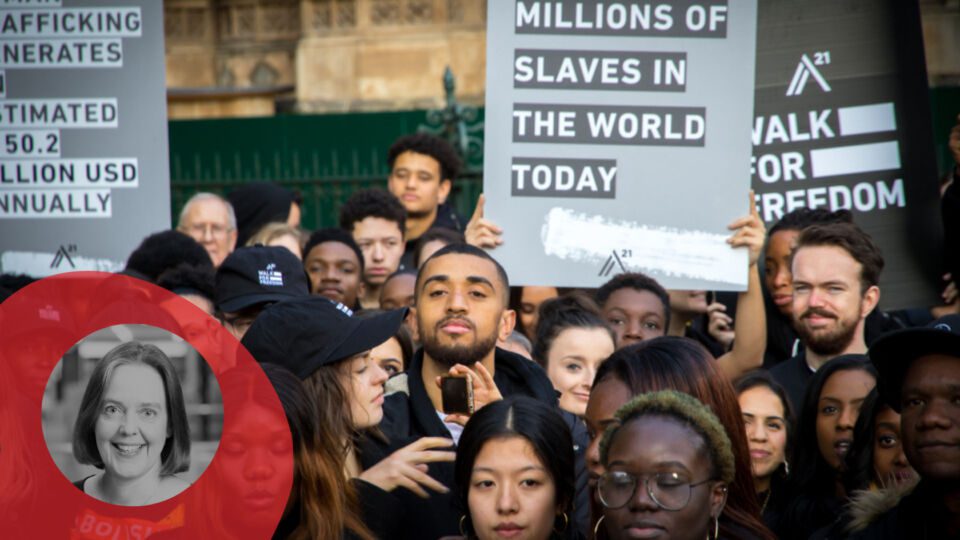The pandemic has pushed global supply chains to the limit. Lockdowns and border closures triggered widespread delays, while material and labor shortages forced many businesses to shut up shop. For criminals, however, times of crisis create new opportunities. Nefarious actors have been quick to respond to unprecedented levels of disruption and plug the gaps. Businesses have been left more exposed to the risk of modern slavery in their supply chains, and many could be unwittingly falling foul of anti-slavery laws as a result.
A ‘Perfect Storm’
For business leaders, the severity of the crisis called for a rapid response to remain both operational and solvent. Many multinational organizations were forced to quickly change and onboard suppliers to meet fluctuating demand. But with due diligence being conducted remotely across the globe, it has become harder and harder to spot and assess weak links with the supply chain — including those suppliers that may have links to labor exploitation.
Disruptions caused by the pandemic have therefore created a “perfect storm” for modern slavery to thrive in corporate supply chains. To better understand this phenomenon, Dow Jones has conducted research into the impact of COVID-19 on modern slavery — an illegal activity which, according to the International Labour Organization, generates $150 billion in profit each year.
The study found that labor exploitation overtook sexual exploitation as the most reported trafficking type following the onset of the pandemic, making up 41% of all cases reported to NGOs (other forms include trafficking for organ removal and criminal activities).
Although the risks have increased, the Dow Jones research found that COVID-19 has taken focus away from the slavery industry. News coverage of modern slavery incidents fell by 25% between January and June 2020 compared to the previous year. Distracted by the demands of the pandemic, many business leaders could be unaware of the rising risks.
Tackling the Issue
Complacency about modern slavery poses legal and reputational risks for companies operating in countries and states where they are required to demonstrate they have made efforts to eliminate slavery from their supply chains. But while much risk evaluation is still being done from a distance, there are steps businesses can take to better safeguard the integrity of their supply chains — and hold suppliers to account when they fall short of expectations.
- Do your due diligence: If you quickly onboarded new suppliers during the early days of the pandemic, now is the time to go back and do the necessary due diligence. It’s vital to screen third parties using high quality risk data — drawn from trusted, publicly available sources such as news articles and official reports — to catch any red flags. In instances where there are no initial warnings from the data screening process, a good compliance team will implement additional checks, such as assessing the ownership structures, which may uncover other unscrupulous entities hidden from the initial screening.
- Identify red flags in real-time: It’s important to remember that risks are never static — particularly during times of volatility. Businesses need to be able to identify and manage supply chain risks in real-time. That is where adverse media coverage comes into play. News articles contain important clues that help link individuals or companies to previous involvement with illicit activity. Monitoring negative news allows compliance teams to continuously screen and monitor their third parties against current, relevant data — including modern slavery-related risks.
- Empower your employees: Fighting modern slavery is more than just a box-ticking exercise; it’s about raising awareness of modern slavery issues and making that part of the fabric of your corporate culture. Businesses need to educate compliance teams and people on the ground on how to spot the signs of slavery in your supply chains. Offering dedicated training to any employee who is exposed to high-risk areas will help them understand the key aspects and indicators of modern slavery, and how to flag potential cases of exploitation.
Businesses Have to Sit up and Take Responsibility
Ultimately, COVID-19 has left companies more exposed to the risk of modern slavery and business leaders cannot afford to be complacent. Although modern slavery legislation is yet to take off at a federal level in the U.S., we are likely to see greater scrutiny on this issue given President Biden’s human rights agenda — witness the recent sanctions against Chinese officials for alleged human rights abuses against ethnic minorities in Xinjiang.
Criminal liability and fines, disgorgement of profits, forfeiture of assets and loss in share value — these are the consequences companies face for failing to prevent illegal or unethical activity by the third parties with which they work. Any business with a complex, cross-border supply chain has a moral imperative to conduct deeper due diligence, improve processes and leverage data to guarantee the integrity of their operations. Because we are not only talking about regulatory and reputational risks; human lives are on the line.
Ingrid Verschuren is SVP of Data Strategy for Dow Jones & Company. Based in Barcelona, she leads a team of global researchers who are responsible for collecting, maintaining and enriching the data that powers Dow Jones’s professional products. Verschuren feels passionately about how data can help tackle some of world’s most pressing issues, including modern slavery. A recognized subject matter expert in this field, she has been invited to speak at the UN and other high profile industry events.




